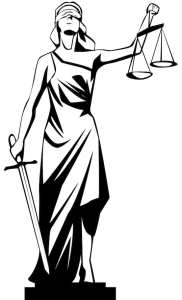FACTS:
Don Mariano Cui, widower, as owner of 3 lots situated in the City of Cebu, sold said three lots to three of his children named Rosario C. de Encarnacion, Mercedes C. de Ramas and Antonio Ma. Cui, pro indiviso for the sum of P64,000. However one-third of the property corresponding to Rosario C. de Encarnacion was returned to the vendor because she was not able to pay for the purchase price which resulted to the cancellation of the 1/3 sale. Because of the sale of these lots pro indiviso and because of the cancellation of the sale to one of the three original vendees, Don Mariano and his children Mercedes and Antonio became co-owners of the whole mass in equal portions. In the deed of sale vendor Don Mariano retained for himself the usufruct of the property. Subsequently, a building was erected on a portion of this mass facing Calderon street and was occupied by a Chinese businessman for which he paid Don Mariano P600 a month as rental. The date when the building, was constructed and by whom do not appear in the record.
Sometime after the sale to Mercedes and Antonio the two applied to the Rehabilitation Finance Corporation (RFC) for a loan of P130,000 with which to construct a 12-door commercial building presumably on a portion of the entire parcel corresponding to their share. On January 7, 1947 Don Mariano, executed an authority to mortgage authorizing his two children co-owners to mortgage his share. The loan was eventually granted and was secured by a mortgage on the three lots in question, Don Mariano being included as one of the three mortgagors and signing the corresponding promissory note with his two co-owners. He did not however, join in the construction of the 12-door commercial building.
The 12-door commercial building was eventually constructed and the builder-owners thereof Mercedes and Antonio received and continued to receive the rents thereof amounting to P4,800 a month and paying therefrom the installments due for payment on the loan to the Rehabilitation Finance Corporation.
The complaint alleges that the usufructuary right reserved in favor of Don Mariano Cui extends to and includes the rentals of the building constructed by Antonio Cui and Mercedes Cui on the land sold to them by their father; that the defendants retained those rentals for themselves; that the usufructuary rights of the vendor were of the essence of the sale, and their violation entitled him to rescind (or resolve) the sale. It prayed either for rescission with accounting, or for delivery of the rentals of the building with interests, attorneys’ fees and costs.
Issue: Whether or not the usufruct reserved by the vendor in the deed of sale, over the lots in question that were at the time vacant and unoccupied, gave the usufructuary the right to receive the rentals of the commercial building constructed by the vendees with funds borrowed from the Rehabilitation and Finance Corporation, the loan being secured by a mortgage over the lots sold.
Whether or not the failure of the vendees to pay over its rentals to the usufructuary entitled the latter to rescind, or more properly, resolve the contract of sale.
Whether the action for rescission due to breach of the contract could still be enforced and was not yet barred.
Held: Under the articles of the Civil Code on industrial accession by modification on the principal land (Articles 445 to 456 of the Civil Code) such accession is limited either to buildings erected on the land of another, or buildings constructed by the owner of the land with materials owned by someone else.
Thus, Article 445, establishing the basic rule of industrial accession, prescribes that —
Whatever is built, planted or sown on the land of another, and the improvements or repairs made thereon, belong to the owner of the land subject to the provisions of the following articles.
while Article 449 states:
He who builds, plants or sows in bad faith on the land of another, loses what is built, planted or sown without right to indemnity. (Emphasis supplied)
Articles 447 and 445, in turn, treat of accession produced by the landowner’s building, planting and sowing “with the materials of another” and when “the materials, plants or seeds belong to a third person other than the landowner or the builder, planter or sower.
Nowhere in these articles on industrial accession is there any mention of the case of landowner building on his own land with materials owned by himself (which is the case of appellees Mercedes and Antonio Cui).
The Civil Code itself limits the cases of industrial accession to those involving land and materials belonging to different owners
The usufruct over the land did not entitle the usufructuary to either the gross or the net income of the building erected by the vendees, but only to the rental value of the portion of the land occupied by the structure (in so far as the usufructuary was prevented from utilizing said portion), and that rental value was not liquidated when the complaints were filed in the court below, hence, there was no default in its payment. Actually, this theory of appellants fails to take into account that Don Mariano could not retain ownership of the land and, at the same time, be the usufructuary thereof. His intention of the usufructuary rights in itself imports that he was no longer its owner. For usufruct is essentially jus in re aliena; and to be a usufructuary of one’s own property is in law a contradiction in terms, and a conceptual absurdity.
